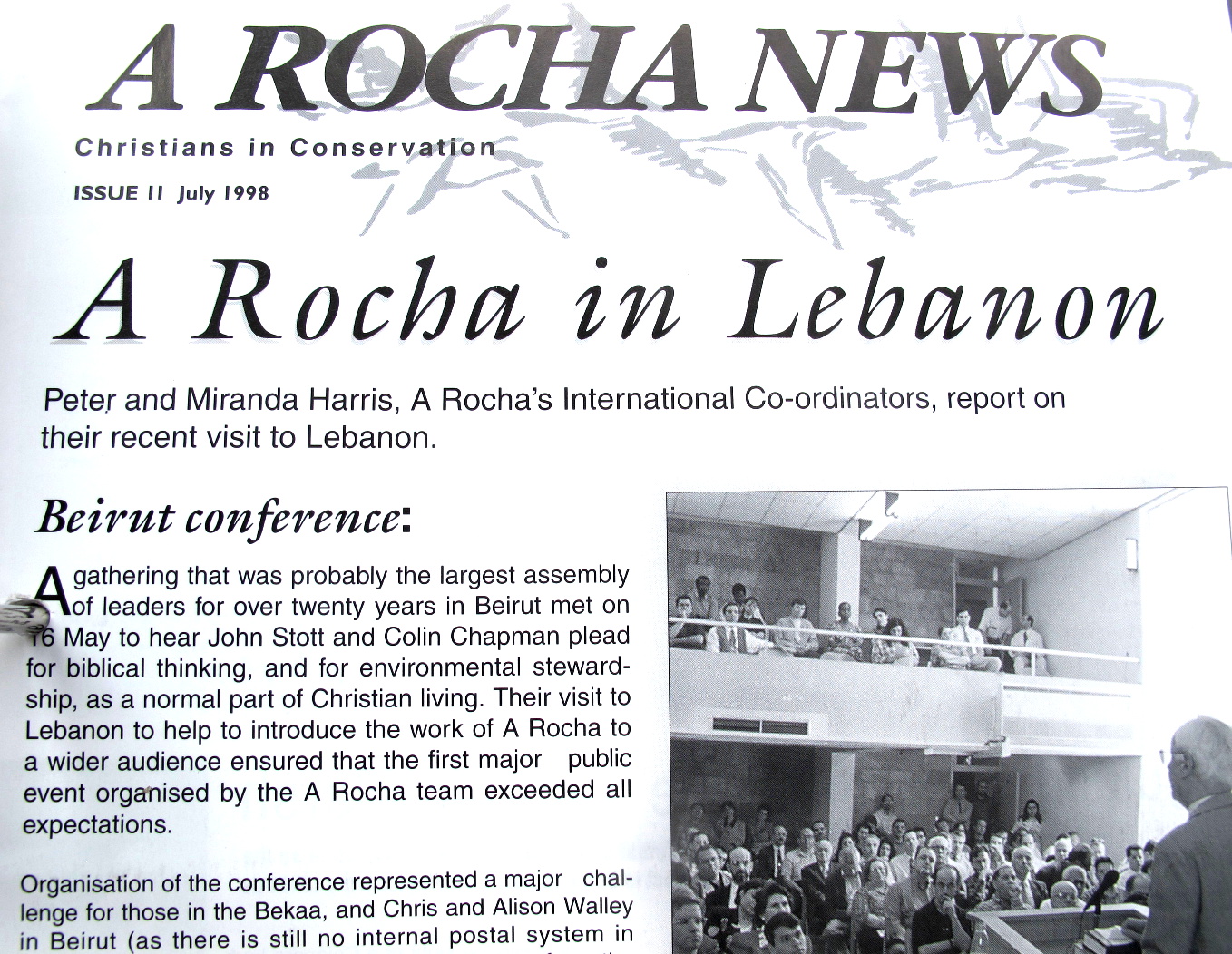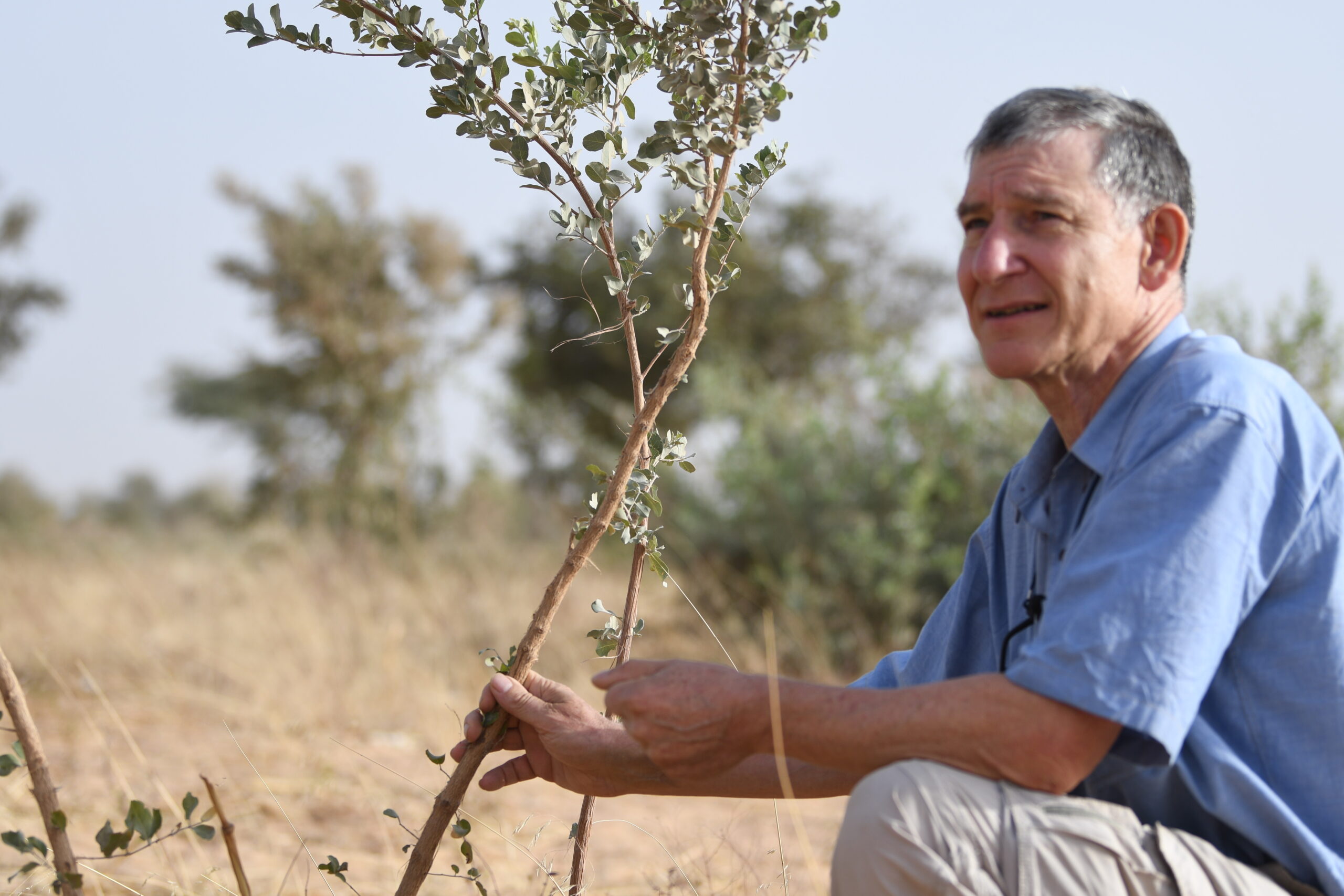A Rocha’s five core commitments as lived by John Stott – 5: Cooperation
I have a small, determined grandson. He can insert an astonishing number of vowels into the word NO. Whether in two-year olds or adults, strong differences of opinion may need to pass through several stages before a degree of cooperation is reached − careful mutual listening for example, clear communication of views, appropriate compromise perhaps, and peace-making − which in his case means a cuddle. His brother, at a similar age, once took a different approach to conflict. Under severe, albeit playful, provocation from his father, he began to respond, then calmly assessing the situation, changed his mind. Turning in the opposite direction he said quietly to himself, ‘Walk away, just walk away.’ Oh, the wisdom of a two-year old!

John Stott was entirely familiar with both these approaches to addressing differences of opinion which matter. He was humble, wise and gracious enough to know that cooperation with people of vastly different opinions and beliefs is essential if the church is to move towards unity based on the unchanging truth of the biblical record and the lordship of Christ over all creation, as well as to be God’s means of transforming society. Often for him it involved a long, patient process of painstaking study, honest dialogue and irenic bridge-building before sufficient ground was cleared for genuine cooperation. Sometimes, like my grandson, he had to just walk away.
The 1974 Lausanne conference provides an excellent example of John’s tireless and rigorous engagement with Christian leaders from all over the world expressing forceful, but conflicting views on what it means to proclaim the gospel. He insisted that God’s mission in the world involves much more than verbal proclamation. Some people felt he thereby undermined the importance of evangelism, but many of these leaders, especially from the Majority World, credit John’s role at the congress with saving the integrity of evangelical faith and witness in an age of increasing scepticism about the church’s relevance. ‘John was compassionate, patient and prophetic as he disarmed the critics and convinced the sceptics,’ said Peter Kusmic from Croatia, the twenty-eight year old principal of a theological college in communist-dominated Yugoslavia, who first met John at the conference. Later, after working with him on many occasions, Peter became one of the leaders of the global Lausanne movement. The skilful diplomacy which John exercised at Lausanne could not have taken place had he held an entrenched position, but only by cooperating in a vigorous, shared process with those of equally strong convictions. Once again his brilliant mind, soaked in the study of scripture, allied with his unfailing graciousness, enabled connections to take place and relationships to develop which prevented many potential divisions in the church. It was at this conference that he was recognised as the apostle, or ‘chief engineer’ of evangelical unity.
In 1984, Marshall, Morgan & Scott published Issues Facing Christians Today. John always insisted that Christians have twin commitments: to the Bible as God’s written word, and to the world in which humankind is placed, in all its dimensions, social, political and environmental. On the whole it is easier for us to keep these worlds separate from our ‘spiritual lives’, but John was determined to ‘think Christianly’ and teach others to do the same. ‘We are to live under the word in the world,’ he said. This ambitious tome addresses subjects as wide-ranging as global economics, social justice, human sexuality and the nuclear threat. With characteristic humility he acknowledged his hesitance to trespass in fields where he lacked expertise, and admitted to feeling both presumptuous and foolish in attempting the massive task of applying biblical revelation to complex contemporary issues. He came close to abandoning the project altogether, knowing he was not a specialist in social ethics or moral theology. But yet again, many years of meeting and listening to experts on these topics, and driven by powerful convictions that all of life is in need of conversion if society itself is to be transformed, he displayed creative cooperation on a huge scale so that this book could become the valuable resource it is to Christians grappling with the complicated issues of our day.
This gift and grace of cooperation has been illustrated over and over again in the life of A Rocha. Perhaps one of the most far-reaching events made possible by the widespread respect and trust in which John was held was a conference which took place in Beirut in 1997, during the early days of Chris and Susanna Naylor’s remarkable conservation work in the Bekaa Valley. It was the largest gathering of Christian leaders in Lebanon for over 20 years. Widely differing histories and theological persuasions were represented, yet because of John’s extraordinary convening power they were eager to gather around a subject new to them all: the care of creation as an intrinsic response to the gospel. For each of them, biblical reasoning would be even more persuasive than arguments about the country’s environmental crisis, and no-one could provide that more powerfully than John. His early endorsement of A Rocha through this event paved the way to good relationships with Christian leaders which the Naylors could build on. They and their team also gained the trust and cooperation of local landowners and the wider community, patiently developing a wide constituency of partners. So the project moved forward with strong support, remaining steady through politically turbulent times and achieving a remarkable transformation of the Aammiq Wetland, the focus of their conservation efforts, which John himself later visited.
Cooperation is not the same thing as capitulation, nor faint-hearted compromise. John Stott was rarely if ever guilty of either. (Neither for that matter are my grandsons). But as with the other four core values of A Rocha: Christian, Conservation, Cross-cultural, and Community, John has defined and exemplified Cooperation in a way that provides us with both inspiration and challenge. As a global movement, we too aspire to a posture of respectful dialogue to establish common ground and preserve unity among Christians and cooperation with all where possible. The New York Times wrote of his huge impact upon the church, and TIME magazine included him in its list of the world’s hundred most influential people. But I think the person who says it best, because of knowing John for over forty years as a mentor and friend, is Peter Kusmic, so the last sentence, of my last blog, in honour of this great statesman of the church and friend of A Rocha, goes to him. ‘John Stott is the most wholesome, Christ-like and globally influential Christian servant-leader I have ever known.’
We are happy for our blogs to be used by third parties on condition that the author is cited and A Rocha International, arocha.org, is credited as the original source. We would be grateful if you could let us know if you have used our material, by emailing [email protected].




Thank you for this. I love to holistic work and doing in Nepal through Ngo’s and Church.